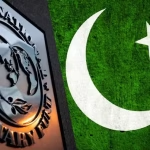Pakistan State Oil Co. Ltd. (PSO), Pakistan’s primary oil marketing business, continues to dominate the energy industry, posting the highest-ever nine-month profit after tax of Rs. 64.8 billion, up 690 percent or 6.9x over the same time previous year.
In the preceding 9MFY21, it made a profit of Rs. 18.2 billion, illustrating the company’s flexibility and strength throughout its varied business.
PSO surpassed the sector in all petroleum products, resulting in a stunning 3.4 percent growth in market share from June 30, 2021 to June 30, 2022.
PSO’s Board of Management assessed the company’s performance, as well as those of its subsidiary Pakistan Refinery Limited (PRL), at a meeting held on April 28, 2022 at PSO’s corporate office in Karachi.
PRL declared a profit after tax of Rs. 5.4 billion for the quarter, rising 800 percent or 8x over the previous year’s profit of Rs. 0.6 billion. The Group’s consolidated net profit after tax was Rs. 69.3 billion, up from Rs. 18.3 billion the previous year.
PSO maintained its lead in the downstream sector, with volumetric sales increase of 22.0 percent in liquid fuels versus 13.6 percent for the industry, collecting 48.3 percent and 56.5 percent of the white and black oil markets, respectively.
The company’s earnings per share climbed to Rs. 137.96 from Rs. 38.86.
Motor gasoline, high-speed diesel, and furnace oil were the main drivers of this development, with volumetric sales increasing by 15.5 percent, 26.0 percent, and 22.0 percent, respectively, versus industry growth of 8.8 percent, 17.8 percent, and 13.9 percent in the same time previous year. It resulted in a 2.5 percent, 3.3 percent, and 3.7 percent rise in PSO’s market share in these items, respectively.
Despite a worldwide energy supply crisis, PSO stayed committed to the country and filled the supply shortfall by buying four more HSD cargoes from the international spot market to avert a potential dry-out. To fulfil the country’s expanding demand for petroleum products, the firm constructed 112.5 thousand tonnes of new storage and repaired 32.5 thousand tonnes of existing storage throughout the time.
The firm added 39 new locations to its greatest retail footprint, while also improving the consumer experience on its forecourt with non-fuel retail offerings such as quick-service restaurants, convenience stores, and banking facilities. To address fast-changing consumer expectations, PSO reintroduced Carient Fully Synthetic Motor Oil with a vibrant new design and an upgraded double handle pack.
PSO and TotalEnergies Aviation, France, reaffirmed their collaboration by signing Fuel Supply and Technical Services Agreements. In addition, the business collaborated with Frontier Works Organization (FWO) to build two state-of-the-art retail stations on the Lahore-Sialkot motorway (North and South), each with Electro (EV charging) and facilities for motorists’ comfort. PSO inked a multi-grade project throughput agreement with Pak Arab Pipeline Firm (PAPCO) for the white oil pipeline and became the first oil marketing company to give oil-in for the project’s start.
The Honorable President of Pakistan presented PSO with the Largest Taxpayer Award (Import Sector-Nationwide) to recognise its contribution to national tax collection and promote voluntary compliance while increasing revenue collection. The business also took home the 36th Corporate Excellence Award from the Management Association of Pakistan (MAP) in the Oil Marketing Companies (OMC) category.
PSO contributed PKR 108 million to different healthcare, education, and social development programmes through its CSR Trust as a good corporate citizen. PSO vaccinated approximately 200,000 people in 17 different sites, including far-flung areas, to assist NCOC’s campaign for a corona-free Pakistan.
The Board voiced worry over rising trade receivables, particularly the PKR 149.3 billion rise in receivables from Sui Northern Gas Pipelines Limited from June 30, 2021 to June 30, 2022. The company is aggressively pursuing the situation with the appropriate authorities in order to recover outstanding debts.
For their direction and assistance, the management extended appreciation to all stakeholders, including its Board of Management, the Government of Pakistan, and notably the Ministry of Energy (Petroleum Division).









